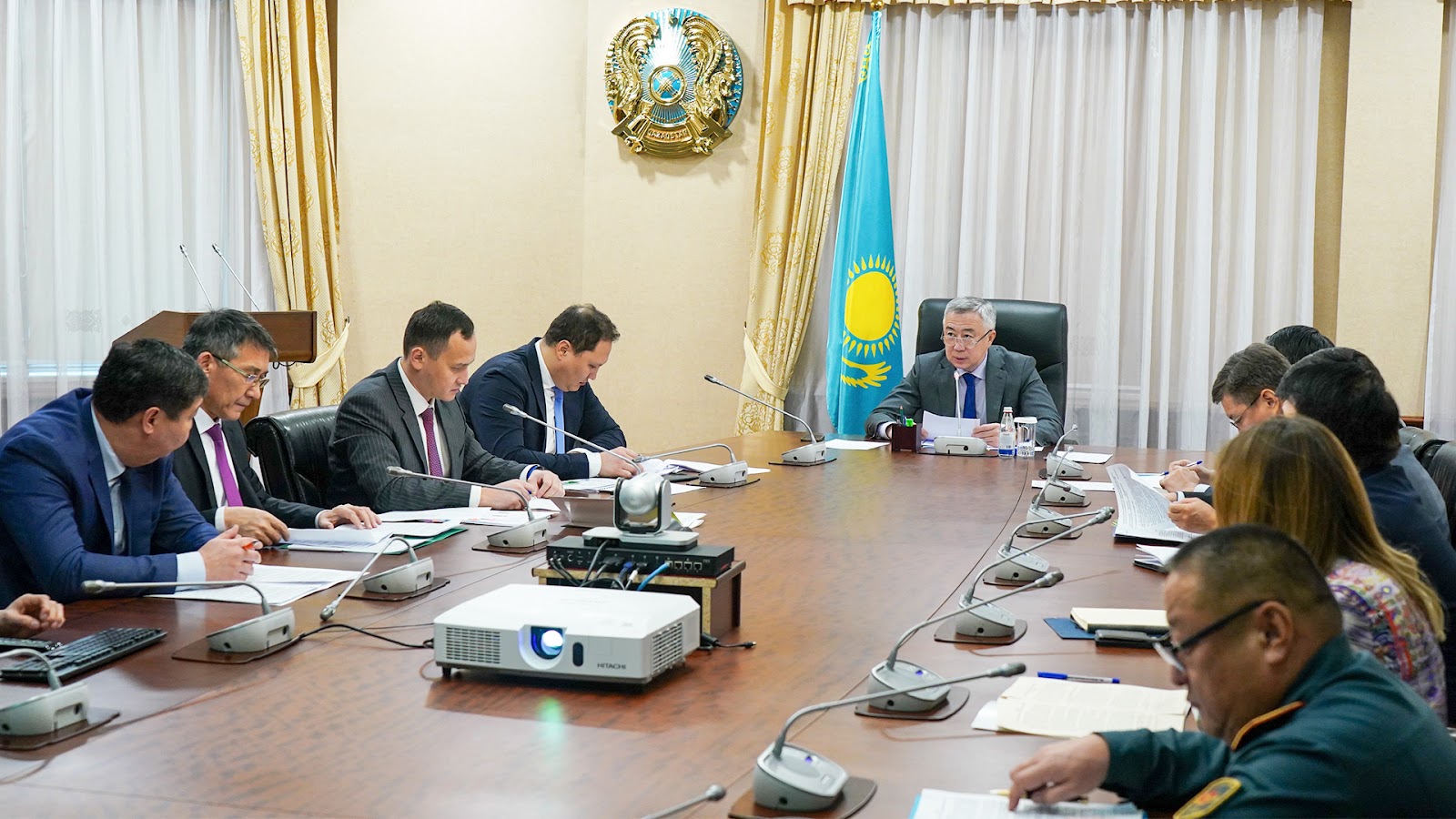Serik Zhumangarin discussed measures to support light industry with representatives of business and government agencies

Issues of development of light industry and cotton processing were discussed on Friday at a meeting chaired by Deputy Prime Minister - Minister of Trade and Integration of Kazakhstan Serik Zhumangarin.
The meeting was organized in continuation of the meeting with businessmen of the Turkestan region. The Deputy Prime Minister gathered representatives of government agencies, quasi-public sector, industry associations and light industry enterprises in Astana. There is one question on the agenda: how to ensure full-fledged cotton processing in the country and support the development of the light industry.
According to the Ministry of Industry and Infrastructure Development of the Republic of Kazakhstan, as of November 1, 2022, there are 1,396 light industry enterprises operating in Kazakhstan, of which 816 are sewing enterprises, 461 are textile manufacturers, 119 produce leather and related products. The share of light industry in the country's GDP is 0.1%, in manufacturing – 0.8%.
Today, the domestic clothing and footwear market is mainly aimed at meeting the needs of regulated procurement and the state defense order.
Chairman of the Industrial Development Committee of the Ministry of Foreign Affairs of the Republic of Kazakhstan Ilyas Ospanov said at the meeting that this year a Roadmap for the development of light industry for 2022-2025 was developed and approved, which includes measures to develop the raw material base, processing of raw materials, increasing the capacity of domestic producers of light industry, attracting investment, introducing world experience and developing exports.
However, solving the problems of the light industry affects several sectors of the economy at once, and, first of all, the agro-industrial complex. Farmers of the Turkestan region are traditionally engaged in the production of raw cotton. On average, Kazakhstan produces about 327 thousand tons of cotton per year, but Kazakh enterprises do not have the opportunity to process all raw materials.
The Association of Light Industry Enterprises assures that the cotton industry has potential. We only need state support measures.
According to business, an effective measure may be the unification of light industry products into a single public procurement pool. Then domestic producers will get guaranteed access to the state order.
"In this case, we will see how much production is needed by state—owned enterprises," said Gulmira Uakhitova, chairman of the association of light industry enterprises "Qaz Textile Industry".
In turn, the representative of the state defense order proposed to Kazakhstani light industry enterprises to improve the quality of fabric and products, improve production technology, develop a Kazakhstani brand that would supply workwear only for the law enforcement agencies of Kazakhstan. For their part, representatives of government agencies — customers are ready to increase the share of local content in purchases from 30 to 70% for light industry, provided that domestic producers provide decent product quality.
The meeting also voiced proposals for the construction of new textile factories, attracting investors, including light industry enterprises in the list of priority sectors of the FEZ, granting preferences to light industry enterprises.
"The task of the state is to create conditions for business, and investors will come," - Serik Zhumangarin summed up.
In conclusion, the Minister of Trade and Integration instructed to consolidate all proposals for the development of the light industry by the end of the year and submit them to the next meeting.